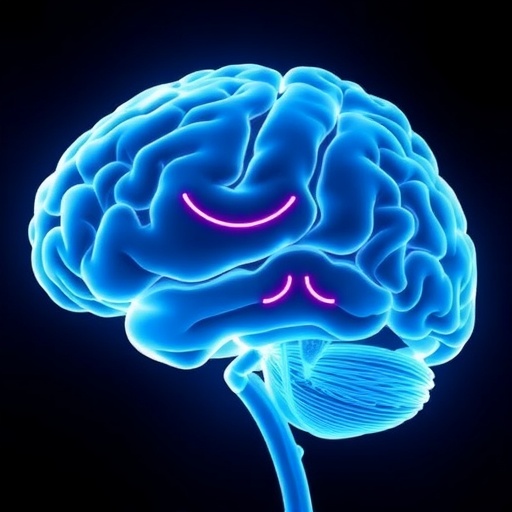
In a groundbreaking study published in the journal BMC Nursing, researcher A.M. Alodhialah explores the intricate relationship between oncology nursesâ emotional intelligence, burnout levels, and their capacity for patient-centered communication. This cross-sectional study highlights an urgent need for healthcare organizations to prioritize the emotional needs of their nursing staff, particularly those working in the high-pressure environment of oncology. Emphasizing the importance of emotional intelligenceâunderstood as the ability to recognize, understand, and manage oneâs own and others’ emotionsâthe study reveals compelling insights with the potential to transform nursing practice and enhance patient outcomes.
The studyâs implications are especially significant given the contemporary challenges faced by oncology nurses. As frontline caregivers, these professionals navigate not only the physical demands of patient care but also the psychological strains that come with caring for individuals facing life-threatening illnesses. Nurses are often seen as the backbone of healthcare systems, yet their emotional well-being frequently takes a backseat, leading to increased burnout. Bakeries of this research indicate that when nurses possess higher levels of emotional intelligence, they are better equipped to manage stress and avoid burnout, ultimately benefiting the entire healthcare ecosystem.
Burnout among healthcare professionals is a critical issue that has garnered increasing attention. Defined as a state of emotional, mental, and physical exhaustion caused by prolonged and excessive stress, burnout can have dire consequences not just for nurses but also for patient care quality. The study presents alarming statistics that show a staggering percentage of oncology nurses reporting significant burnout, which in turn correlates with poorer patient outcomes and lower levels of patient satisfaction. The need for systemic interventions becomes paramount to reduce this phenomenon.
Alodhialah’s research specifically sheds light on the role of emotional intelligence in mediating the relationship between burnout and patient-centered communication. Emotional intelligence acts as a buffer, allowing nurses to connect more authentically with their patients. High emotional intelligence enables nurses to communicate effectively, fostering a healing environment conducive to patient recovery. This study effectively calls into question the conventional approaches to nurse training that may overlook the emotional dimension of nursing.
Furthermore, the research outlines several key mechanisms through which emotional intelligence exerts its influence on nursing practice. For instance, nurses displaying high emotional intelligence are more likely to engage in active listening and demonstrate empathy. This level of engagement has significant implications for patient communication, as patients feel more valued and understood. Enhanced patient-nurse interactions lead to improved adherence to treatment regimens, ultimately impacting patients’ physical and emotional well-being.
The study also emphasizes the need for ongoing professional development tailored to enhancing emotional intelligence among nurses. Training programs focusing on emotional skills can equip nursing staff with the tools they need to manage their emotions effectively and recognize the emotional states of their patients. By investing in such educational initiatives, healthcare organizations can directly impact nurse resilience, patient relationships, and overall care quality.
Engagement with emotional intelligence is not merely a pathway to reduce burnout; it is also a strategic investment in building a compassionate healthcare workforce. Alodhialahâs research advocates for healthcare executives to integrate emotional intelligence training into their core staff development programs. This proactive approach could lead to a more effective nursing workforce, capable of delivering exceptional care in the often daunting settings of oncology wards.
Moreover, the findings of this study contribute to the broader discourse on the importance of mental health in nursing. The profession faces significant stigma related to mental health struggles, often making nurses reluctant to seek help. By highlighting the interplay between emotional intelligence and burnout, the research aims to destigmatize seeking emotional support and promotes a culture where mental well-being is prioritized.
While the study provides significant insights, it also opens avenues for future research. Understanding the long-term effects of increased emotional intelligence on nursing practice and patient care presents an exciting opportunity for scholars in healthcare fields. Further longitudinal studies could more clearly delineate the impact of emotional intelligence interventions on burnout and communication over time.
In summary, Alodhialahâs research provides compelling evidence that emotional intelligence is not just a desirable trait for oncology nurses but a critical component that influences their well-being and effectiveness. By fostering environments where emotional competencies are nurtured, healthcare systems can enhance nurse satisfaction, reduce burnout, and ultimately improve patient-centered communication.
Adopting measures to encourage emotional intelligence is not simply about improving workplace morale; it directly correlates with the fundamental quality of care provided to patients. As healthcare systems worldwide contend with challenges ranging from staffing shortages to increasing patient demands, the lessons drawn from this study could offer vital strategies for sustaining the workforce and enhancing patient care.
Healthcare organizations must now recognize the paramount importance of emotional intelligence training in nursing curriculums. The growing body of evidence supporting the emotional dimensions of patient care underscores the necessity of these transformations in nursing education and professional development. As the healthcare landscape continues to evolve, prioritizing the psychological well-being of nursing staff is essential for creating resilient healthcare systems.
Through its insightful findings, Alodhialah’s study not only sheds light on the challenges faced by oncology nurses but also presents an actionable roadmap for improving nursing practice and patient care quality. By implementing programs that cultivate emotional intelligence and foster supportive environments, healthcare organizations can empower nurses to excel, ultimately paving the way for a healthier and more compassionate society.
Subject of Research: The relationship between oncology nursesâ emotional intelligence, burnout, and patient-centered communication.
Article Title: The relationship between oncology nursesâ emotional intelligence, burnout, and patient-centered communication: a cross-sectional study.
Article References:
Alodhialah, A.M. The relationship between oncology nursesâ emotional intelligence, burnout, and patient-centered communication: a cross-sectional study. BMC Nurs 24, 1120 (2025). https://doi.org/10.1186/s12912-025-03780-9
Image Credits: AI Generated
DOI: 10.1186/s12912-025-03780-9
Keywords: Oncology nursing, emotional intelligence, burnout, patient-centered communication, nursing practice, healthcare systems.
Tags: burnout in healthcare professionalsemotional intelligence in oncologyfrontline caregivers emotional needshealthcare organizational supportimproving patient outcomes through emotional intelligencelife-threatening illness carenurse burnout prevention strategiesnursing practice transformationoncology nurses emotional intelligencepatient-centered communication in nursingpsychological well-being of nursesstress management for nurses




